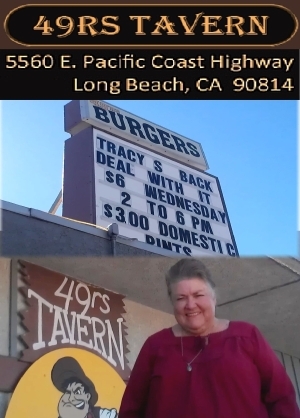[Gov. Newsom March 11, 2019 release text]
SACRAMENTO -- Governor Gavin Newsom today announced a major legislative proposal as part of his $1.75 billion package to confront the housing cost crisis. The new proposal sets higher short-term goals for housing that cities and counties must meet, and provides $750 million in support and incentives to help jurisdictions plan and zone for these higher, ambitious housing targets.
The proposal would also update and modernize the state's long-term housing goals, known as Regional Housing Needs Allocations (RHNA), to better reflect regional housing and transportation needs.
This proposal is one part of Governor Newsom's ambitious $1.75 billion housing package for 2019, which includes $1 billion in tax credits and loans to spur low, mixed and middle-income housing production through separate legislative and budget proposals.
"Our state's affordability crisis is undermining the California Dream and the foundations of our economic well-being," said Governor Newsom. "Families should be able to live near where they work. They shouldn't live in constant fear of eviction or spend their whole paycheck to keep a roof overhead. That's increasingly the case throughout California."
In January, Governor Newsom unveiled his $1.75 billion budget proposal to spur housing in California and called on the Legislature to provide relief and stabilization for renters. He signed an executive order to build affordable housing on excess state lands and announced first-of-its-kind legal action against a city, Huntington Beach, for standing in the way of affordable housing production and refusing to meet regional housing needs. In his State of the State address, he offered state assistance to the 47 California cities out of compliance with state housing requirements and invited city leaders to meetings with state housing officials in Long Beach and Sacramento.
As part of the plan to address the housing cost crisis, the Governor proposes:
Accelerating and Incentivizing Housing Goals
Through these proposals, the California Department of Housing and Community Development (HCD) will establish new, higher short-term statewide housing goals for jurisdictions. HCD will adjust statewide targets for 2020 and 2021 and jurisdictions will be incentivized to accelerate their three-year RHNA goals to reach those benchmarks within two years. HCD will distribute increased targets to jurisdictions based on factors such as jobs, households, and affordability.
Jump-Starting Housing Production
The trailer bills provide $750 million in one-time funding to help jump-start housing production. $250 million will go to cities for planning towards their new, higher short-term housing goals. $500 million will go to cities as incentives as they meet certain milestones of planning and zoning for more housing.
Local governments will receive $250 million in grants to support technical assistance and staffing to adjust plans to reach the higher RHNA goals – half directly to cities, and half through regions. Regions will create action plans to identify process improvements, barriers to production, and other activities needed to increase production. Cities will receive $125 million to begin work on improving their processes. Another $125 million will be distributed to regions to plan and award to cities in accordance with regional plans. If a jurisdiction is in a region or county that has not submitted a plan, they can submit their own for HCD approval. HCD will identify a methodology to distribute incentive rewards to these unique jurisdictions.
An additional $500 million will be made available to cities in incentive grants. Beginning in 2021, incentive grants for general purposes will become available for jurisdictions that have made progress in implementing their plans and meeting increased production goals. Regions will develop the reward methodology, in furtherance of their regional housing plan goals, and with HCD approval.
Steps Towards Long-Term Housing Reform
To make meaningful reforms to the housing crisis in California, all stakeholders must work collaboratively to develop sustainable, long-term solutions. California must take a more comprehensive approach to planning for housing and transportation. This new proposal will ensure that by December 31, 2022, HCD, in collaboration with the Office of Planning and Research (OPR), will engage stakeholders and propose an improved RHNA process and methodology. Working with the California State Transportation Agency and OPR, HCD will engage stakeholders and propose opportunities to link transportation and other non-housing funds with housing goals by the end of 2022. Beginning July 1, 2023, SB 1 Local Streets and Roads funds may be withheld from any jurisdiction that does not have a compliant housing element and has not zoned and entitled for its updated annual housing goals.
Expanding Middle Class Housing Opportunities
A separate trailer bill will propose the creation of a major, new investment in spurring new middle-class housing production. This will happen by providing funding to support the development of affordable housing critical to spurring affordable communities. The Governor's proposal would allocate $500 million for the expansion of the State Housing Tax Credit Program. These funds would pair with the existing underutilized 4 percent affordable housing federal tax credit program -- targeted at new construction projects. Up to $200 million of this new allocation may allowably fund the creation of a new program targeting development of moderate-income housing -- for households of up to 120 percent of AMI -- a population not typically served by the state's housing programs.
The final $500 million of the Governor's housing package does not require a budget trailer bill. It is included in the proposed budget, and proposes a $500 million General Fund one-time allocation to expand CalHFA's Mixed-Income Loan Program. This investment would jumpstart the estimated $43 million in annual funding dedicated to this program, and would pair with the proposed tax credit program described above.
Governor Newsom's action today follows a Feb. 19 meeting (held at LBCC) with a number of officials from various southern California cities during which he indicated Sacramento would help cities meet state-sought housing numbers...and didn't back away from his willingness to sue cities that Sacramento deems non-compliant on land use element matters. (LBREPORT.com coverage, including extended video of Governor's Feb. 19 press event, click here.















